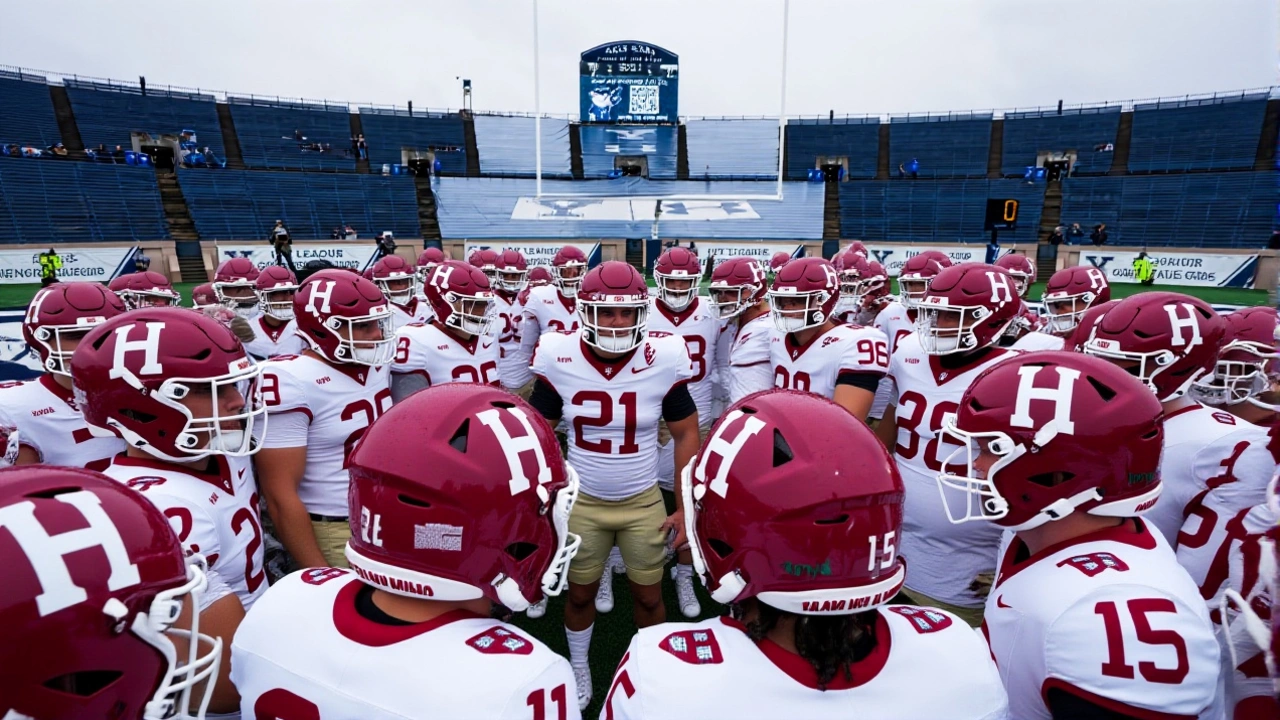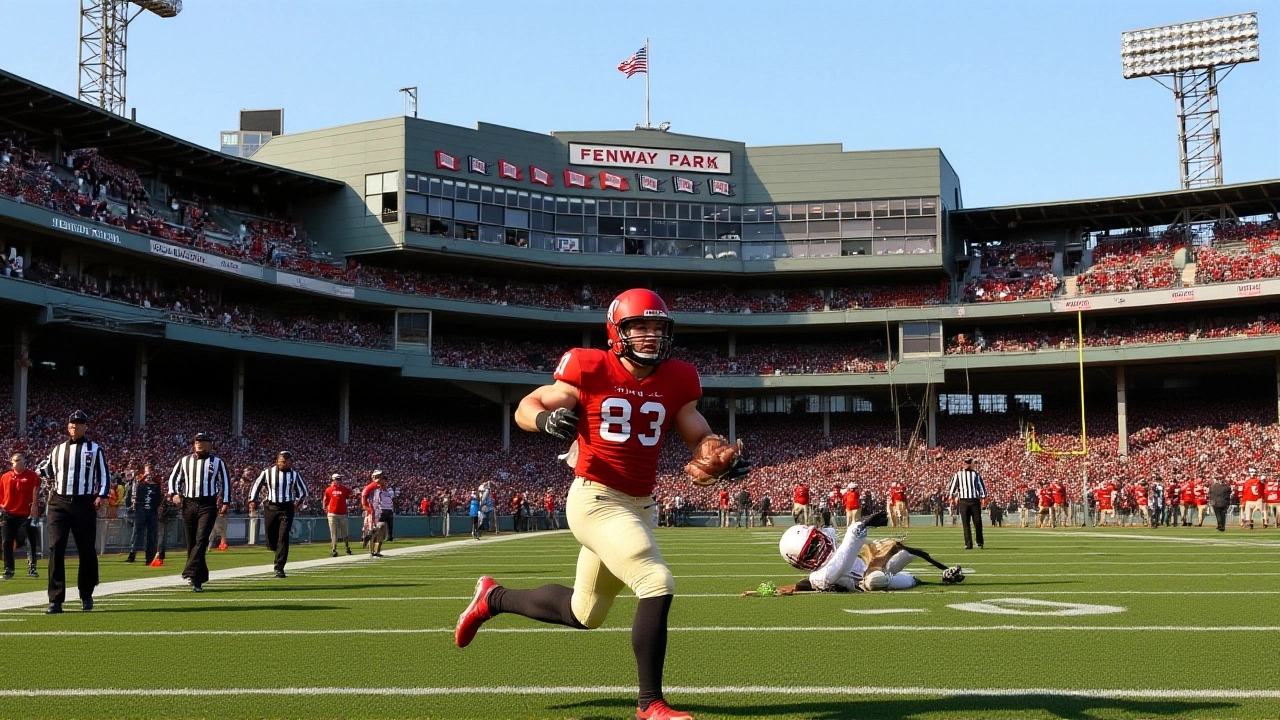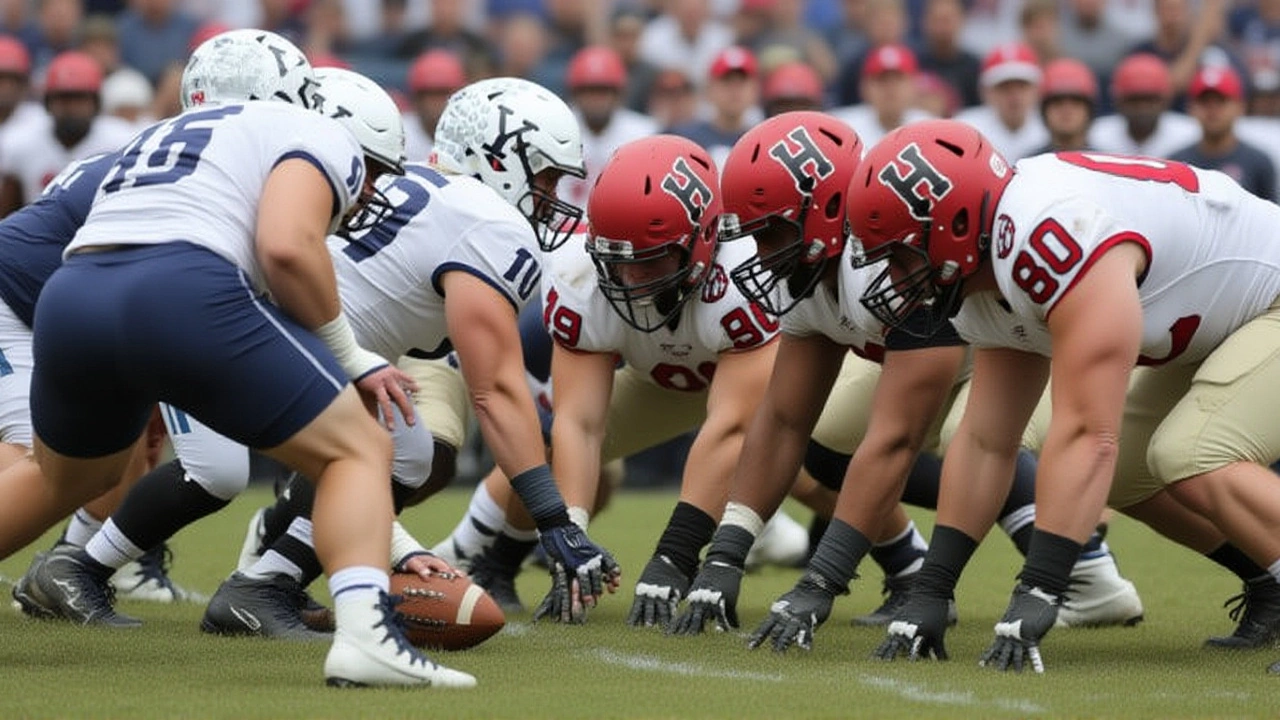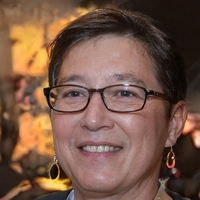The Yale Bulldogs didn’t just win The Game — they rewrote history. On Saturday, November 22, 2025, at the Yale Bowl in New Haven, Connecticut, the No. 25 Bulldogs crushed the No. 10 Harvard Crimson 45-28, clinching a share of the Ivy League title and, for the first time ever, the conference’s automatic bid to the NCAA Division I Football Championship Subdivision (FCS) playoffs. The win wasn’t just another chapter in the 141-year rivalry — it was a seismic shift in Ivy League football, where tradition finally met modern postseason reality.
A Start That Shook the Ivy League
Just 12 seconds into the game, Yale’s defense announced its intentions. Linebacker Lucius Anderson stripped the ball from Harvard’s opening drive, recovered the fumble, and the Bulldogs turned it into a 21-yard touchdown pass from quarterback Dante Reno to Jaxton Santiago. By the 18-second mark, Yale led 7-0. No one in the stands — or watching on ESPN3 — had seen anything like it in this storied rivalry. Harvard, coming in with nine straight wins and averaging 35 points per game, looked stunned.
By the end of the first quarter, Yale had stretched the lead to 10-0 on a 40-yard field goal by Dylan Fingersh. Harvard responded with two touchdowns — a 9-yard strike from Jaden Craig to Ryan Tattersall and a 26-yard scramble by Craig himself — but Yale answered every time. With three seconds left in the half and facing fourth-and-goal from the one-yard line, head coach Tony Reno made the gutsy call: no field goal. Instead, he handed off to running back Pitsenberger, who bulldozed into the end zone. The 31-14 halftime lead wasn’t just a score — it was a statement.
Yale’s Offense, Harvard’s Silence
Dante Reno didn’t just play well — he played like a man possessed. The junior quarterback finished with 273 passing yards and three touchdowns, including a 64-yard bomb to Nico Brown in the third quarter that set up another score. His poise under pressure, especially when Harvard’s defense was swarming, was the difference-maker. Meanwhile, Harvard’s Jaden Craig, who had thrown for over 2,500 yards this season, managed 266 yards and three TDs himself — but the Crimson’s rushing attack? A pathetic 94 yards on 31 carries. That’s not a fluke. That’s a defense that knew exactly how to shut down what Harvard does best.
Yale’s defense didn’t just stop runs — it broke wills. After the first quarter, Harvard’s offense looked disjointed, confused, and out of sync. The Crimson, who had scored at least 30 points in every game this season, were held under 30 for the first time since 2022. The 28 points they managed felt like a moral victory — until you realized they were trailing by 25 at one point.

A Historic Rivalry, A New Era
This was the 141st edition of The Game. Since 1875, it’s been about pride, tradition, and bragging rights. But now, it’s also about playoff berths. For the first time in history, the winner of The Game didn’t just get a trophy — they got a ticket to the FCS playoffs. That’s because the Ivy League, for the first time in 2025, began awarding an automatic bid to its champion. And with Yale and Harvard both finishing 6-1 in conference play, the head-to-head result became the tiebreaker. Yale won. So Yale goes.
Harvard’s Class of 2026? They’ve never beaten Yale. Their four-year college careers ended with four straight losses in The Game — the Crimson’s longest losing streak in the series since 1947. Their 9-1 record, their nine-game winning streak, their unbeaten season hopes — all gone. And yet, analysts say Harvard might still get in. The NCAA selection committee, which meets Sunday, November 23, 2025, at 12:00 p.m. Eastern Time on ESPNU, has Harvard ranked No. 9 nationally. Nine wins. A top-10 finish. A defense that held elite offenses in check. Even a loss like this might not be enough to keep them out.
What This Means for Ivy League Football
The Ivy League has long been the academic outlier in college football — no scholarships, no national TV deals, no postseason dreams. But this year, everything changed. Yale’s victory proves that elite play can coexist with academic rigor. And it sends a message: if you win, you belong on the big stage. The league’s decision to offer an automatic bid in 2025 was bold. The way Yale executed under pressure made it look inevitable.
For the first time since 2023, Yale is Ivy League champion. For the first time ever, an Ivy League team will play in the FCS playoffs. And for the first time, the winner of The Game won’t just hear cheers — they’ll hear the name of their next opponent on national television.

What’s Next?
Yale will find out its playoff opponent on Sunday, November 23, 2025, during the FCS selection show on ESPNU. Harvard, despite the loss, is still in contention for an at-large bid — but the committee will have to weigh a 28-point defeat against nine wins and a top-10 ranking. Meanwhile, the rest of the Ivy League is left wondering: Is this the start of something bigger? Dartmouth and Pennsylvania both finished 4-3. Could next year’s champion be a team from outside the Yale-Harvard duopoly? The door is open now. And the stakes? Higher than ever.
Frequently Asked Questions
How did Yale earn the automatic FCS playoff bid over Harvard?
Yale and Harvard both finished 6-1 in Ivy League play, but Yale won the head-to-head matchup 45-28. Under the Ivy League’s new 2025 playoff rules, the winner of the Yale-Harvard game receives the automatic bid. Even though Harvard had a better overall record (9-1 vs. 8-2), conference tiebreakers prioritize direct results, not total wins.
Has any Ivy League team ever made the FCS playoffs before?
No. This is the first time in the 141-year history of Ivy League football that a team will qualify for the FCS playoffs through an automatic bid. While Ivy teams have received at-large bids in the past (like Harvard in 2014), the conference never had an automatic qualifier until 2025. Yale’s win marks the first time an Ivy League team will enter the postseason as its conference’s champion.
Why did Harvard’s offense struggle so badly?
Yale’s defense focused on containing Jaden Craig’s mobility and shutting down Harvard’s short passing game. The Crimson managed only 94 rushing yards — their lowest total since 2021 — and were forced into 12 third-down situations, converting just three. Yale’s secondary also disrupted timing on deep routes, and the front seven consistently collapsed the pocket, limiting Craig’s ability to extend plays.
What’s the likelihood Harvard gets an at-large bid?
Very high. Harvard enters the selection show ranked No. 9 nationally and has nine wins against a tough schedule, including victories over ranked teams like Princeton and Dartmouth. While the 45-28 loss hurts, the committee has historically favored teams with strong records and national rankings. Most analysts expect Harvard to be one of the final four teams selected, likely as a No. 7 or 8 seed.
What does this mean for future Ivy League football?
This game signals a new era. The automatic bid has elevated the stakes, making The Game not just a rivalry, but a playoff qualifier. Other Ivy schools like Dartmouth and Princeton will now invest more in football, knowing a single win over Yale or Harvard could change everything. Expect increased recruiting, better facilities, and more national attention — all because Yale proved the Ivy League can compete on the biggest stage.

